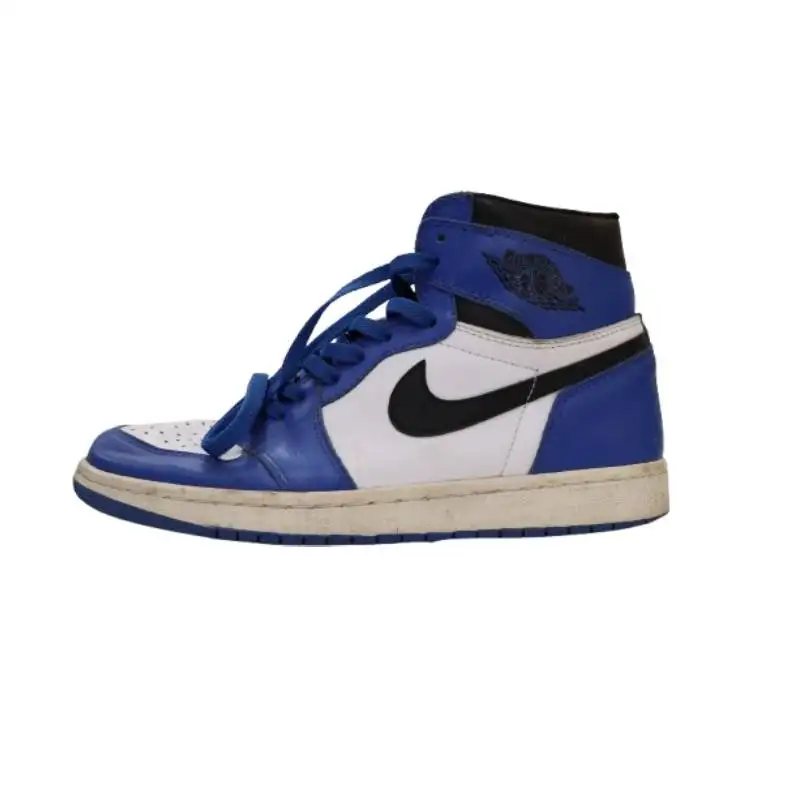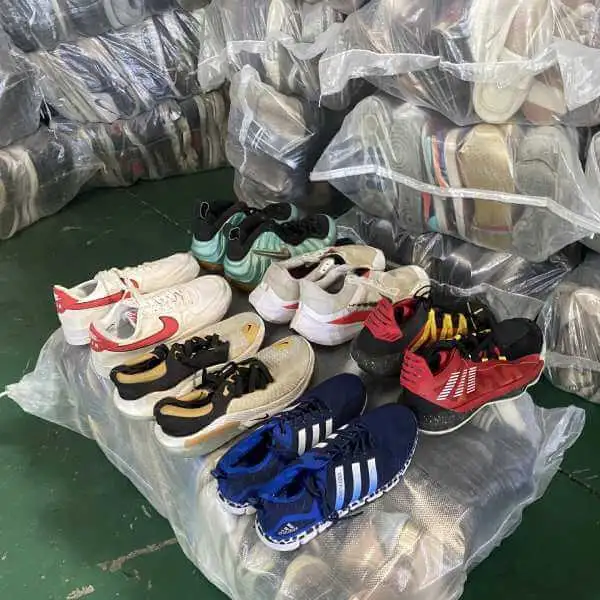I. Introduction
Today, more people care about style and the planet. This is driving the second-hand shoes market to grow fast. As a popular choice, second hand brand shoes are becoming a global favorite , such as used Nike shoes. Consumers worldwide are now paying attention to these options. They are not only affordable, but also carry unique cultural values. Let us take a deeper look at this unique field.

II. The Market Status and Charm of Second Hand Nike Shoes
Second hand Nike shoes have an interesting place in the market. Their appeal comes from both their unique style and the stories they carry.
With the change of consumer concepts, the second hand shoe market has gradually comes up. Due to their brand influence and product quality, second hand brand shoes have become the favorite choice of many consumers. They come at relatively lower prices than new ones while meeting the desire of many consumers for both fashion and practicality.
In the resale market, the most sought-after versions, such as the classic Air Force 1 or Air Jordan series, become available at affordable prices. In this way, the resource recycling, therefore, the reuse of these shoes will also be supported by the shoes. Data reflects a rise in the demand for second hand shoes, which is a proxy for consumer support of sustainable fashion and brand value.
III. The Cultural Association of Second Hand Nike Shoes Goes From Trend to Inheritance
Second hand Nike shoes carry a unique trend culture at the cultural level. As a world-famous sports brand, not only do its products carry the sports-wear spirit, but they later become a part of the expression of fashion. The fact that there is a preference for second hand Nike shoes clearly defines the trend where consumers are pursuing personalized and sustainable lifestyles. Second hand Nike footwear has strong ties to cultural legacy.
A number of old fashions of Nike shoes have become the preferences of collectors and style enthusiasts because of their unique design and historical import. Through the flow of the used market, these used shoes can continue their cultural value and inject new life into the label. The demand for used Nike footwear varies across different cultures. For example, in some Asian economies, buyers prefer getting used Nike shoes which have been checked up on and cleaned to meet their double-barreled need for cost-effectiveness and quality.
IV. The Economic Value of Second Hand Nike Shoes: Promoting Employment and Market Diversification
The economic worth of used Nike footwear is not just in the high cost-benefit of its products but also in the drive behind employment and economic growth. With the upsurge of the circular economy, more people are taking part in acquiring and selling second hand goods. The rise of these positions has opened new job doors for society and is also tied to how well the economy can diversify.
Also, it brings new life to the market- the large business of used Nike shoes. A lot of sellers offer second hand Nike shoes worldwide through global ties, expanding their money reach. For sellers, growing into world markets can raise brand awareness and bring more profits.
V. How to Buy High-Quality Second Hand Nike Shoes
In the process of chasing second hand Nike shoes, it is crucial to master the correct purchase method. First, clarify your needs and budget, which is the basis for choosing used shoes. Next, finding a reliable supplier becomes a key link. The professionalism of the supplier directly affects the quality and variety of second hand shoes.
When picking a second hand shoe supplier, buyers should focus on three things: product quality, supplier reliability, and after-sales support. Always discuss details with suppliers upfront—ask where their products come from, how they check quality, and what their return/refund rules are. Clear communication builds stronger, longer partnerships. Finally, visit the supplier’s warehouses and workshops in person. Seeing their facilities and operations firsthand helps you evaluate their real capabilities and product quality—key evidence for making informed decisions.
For wholesalers, choosing the right supplier is the key to success. A high-quality supplier needs to have the following basic conditions:

1. Reputation and reliability
A supplier’s reputation impacts product quality and how fast items arrive. This is why a supplier’s reputation is critical. When selecting suppliers, wholesalers should prioritize companies known for reliability and a history of dependable partnerships.
2. Inventory quality
The supplier’s inventory should cover a variety of styles and sizes to meet the needs of different consumers. In addition, the shoes in stock should be strictly screened to ensure that there are no obvious defects or damage.
3. Cooperation model
Suppliers should provide flexible cooperation models, such as customized cleaning solutions, bulk discounts, and efficient logistics support to help wholesalers better develop the market.
4. Cost-effectiveness
Suppliers’ prices should be competitive, and at the same time, they should be able to provide preferential conditions for long-term cooperation to reduce the operating costs of wholesalers.
Second hand shoes have unique value in terms of economy, culture and environmental protection. Second hand Nike shoes are ideal for budget-conscious buyers. They’re also trendy, eco-friendly picks for shoppers focused on sustainability. Whether you look at market trends, smart buying strategies, or supplier reliability, the used shoes market is booming. Its potential and appeal are undeniable. Looking ahead, as more consumers prioritize sustainability and recognize brand value, second hand Nike shoes will likely keep thriving globally. They offer a stylish, practical option for shoppers worldwide.
Our company is a high-quality supplier of second hand brand shoes. If you are interested, please feel free to contact us.

